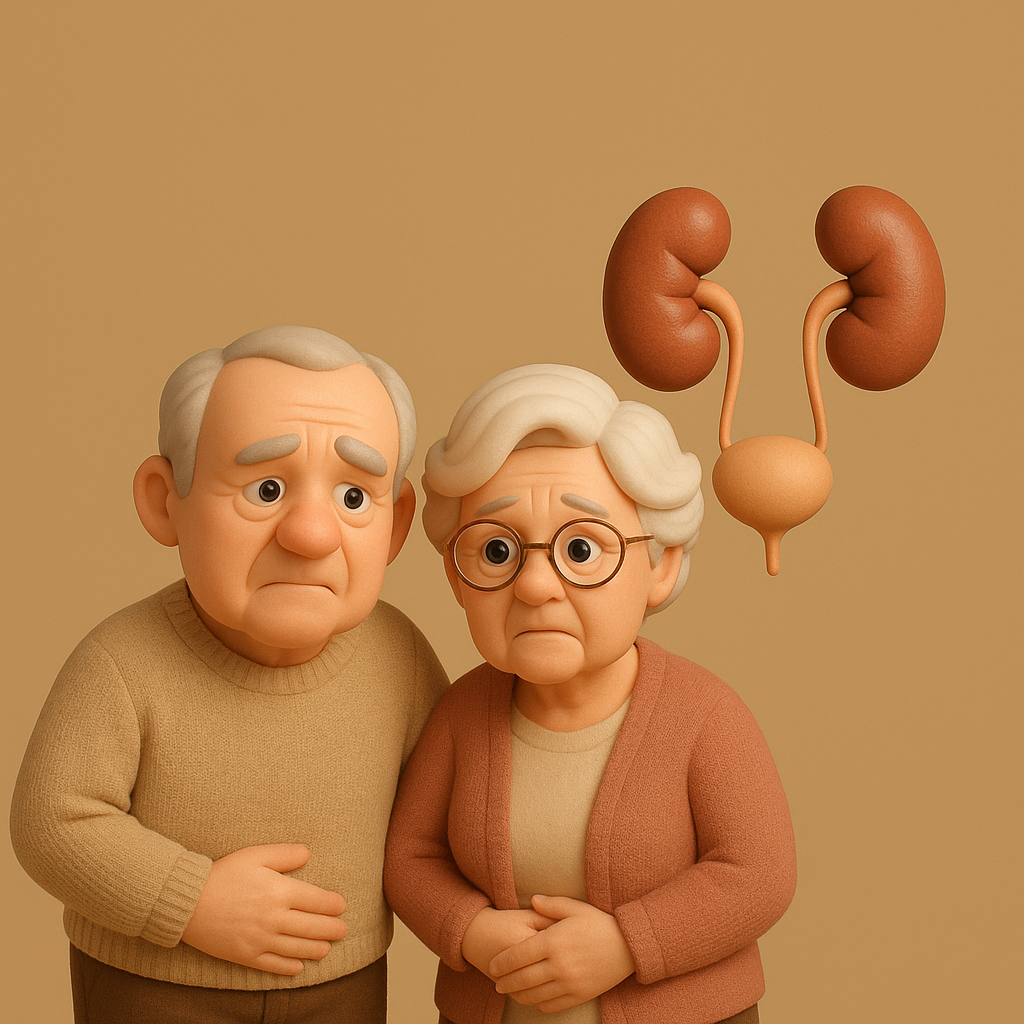Aging is a beautiful journey that brings wisdom, perspective, and life experience. But it also brings changes to the body—some of which are subtle, while others are more noticeable. One area that’s often overlooked in conversations about aging is urological health. Whether you’re in your 50s, 60s, or beyond, understanding how your urinary system changes with age can help you take proactive steps to maintain comfort, confidence, and overall well-being.
Let’s take a closer look at the most common urological changes associated with aging and what you can do to age gracefully—inside and out.
1. The Bladder’s Capacity Decreases
As we age, the bladder’s capacity and elasticity tend to decrease. This means it can’t hold as much urine as it used to, and the signals that tell you to go might become more urgent.
What You Might Notice:
- More frequent trips to the bathroom
- Increased urgency
- Occasional nighttime urination (nocturia)
Tips to Manage:
- Limit fluid intake before bed
- Maintain a healthy weight
- Practice bladder training exercises
2. Weaker Pelvic Floor Muscles
Pelvic floor muscles support your bladder and help control urination. Over time, these muscles can weaken, especially after childbirth or due to hormonal changes during menopause or andropause.
What You Might Notice:
- Mild to moderate urinary incontinence
- Leaking when laughing, coughing, or sneezing
Tips to Manage:
- Do regular Kegel exercises
- Consider physical therapy for pelvic floor strengthening
- Talk to your doctor about other treatments if symptoms persist
3. Enlarged Prostate in Men (Benign Prostatic Hyperplasia – BPH)
For men, one of the most common age-related urological issues is an enlarged prostate. This non-cancerous condition can press on the urethra and affect urine flow.
What You Might Notice:
- Difficulty starting urination
- Weak stream
- Incomplete emptying of the bladder
Tips to Manage:
- Get regular prostate checkups
- Limit caffeine and alcohol
- Medications or minimally invasive procedures can help
4. Post-Menopausal Changes in Women
After menopause, the drop in estrogen levels can lead to changes in the urinary tract, including thinning of the urethral lining and decreased lubrication.
What You Might Notice:
- Increased urinary tract infections (UTIs)
- Burning or discomfort during urination
- A sense of urgency
Tips to Manage:
- Stay hydrated
- Consider vaginal estrogen therapy (under doctor’s advice)
- Practice good hygiene
5. Increased Risk of Urinary Tract Infections (UTIs)
With age, both men and women may become more prone to UTIs due to immune system changes, urinary retention, or other underlying health issues.
What You Might Notice:
- Frequent urination
- Pain or burning sensation
- Cloudy or strong-smelling urine
Tips to Manage:
- Don’t hold urine for too long
- Urinate after sexual activity
- Stay well-hydrated
6. Kidney Function May Decline
Though usually gradual, kidney function tends to decline with age, which can impact how your body filters waste and maintains fluid balance.
What You Might Notice:
- Fatigue
- Swelling in feet or ankles
- Changes in urination
Tips to Manage:
- Monitor blood pressure and blood sugar
- Get regular blood tests to check kidney function
- Maintain a low-sodium, balanced diet
When to See a Urologist
Don’t wait until a problem becomes too bothersome. If you notice persistent changes in your urinary habits or experience discomfort, consult a urologist. Early detection can prevent complications and improve quality of life.
Final Thoughts: Embrace the Journey
Aging doesn’t mean losing control—it means learning to adapt and thrive with the changes. By staying informed, maintaining a healthy lifestyle, and seeking medical advice when needed, you can keep your urological health in check and continue aging gracefully.
Remember: It’s not just about living longer—it’s about living well.

